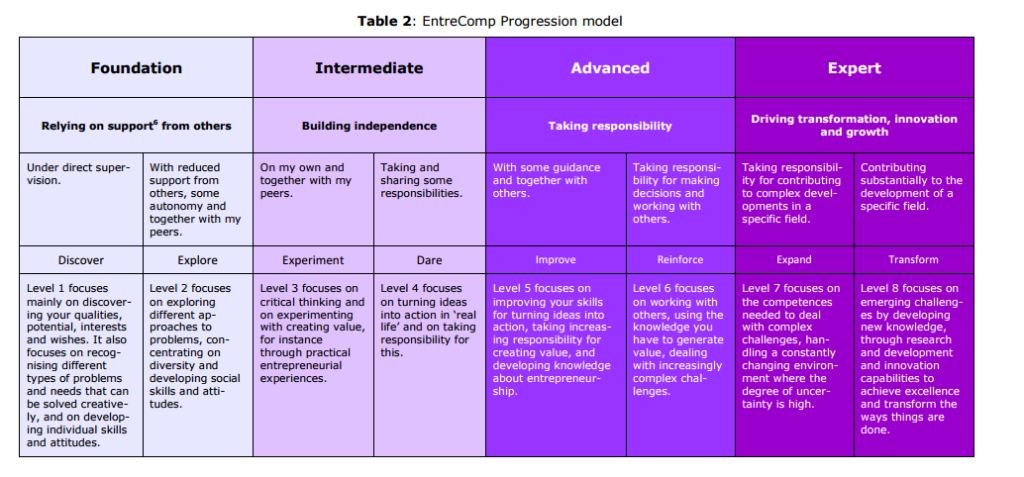There’s a great deal of talk in educational circles about mindset at the moment, mostly directed at nurturing a growth mindset. But when you set out to intentially promote a certain mindset, it quickly becomes clear that it is very difficult to observe a particular mindset and even more difficult to measure progress towards the desired mindset.
In the Prof E Sus project nurturing a sustainable mindset is the key to the success of the whole project and so observing and measuring a susainable mindset is a core goal. Our second Multiplier Event in Espoo, Finland was meant to help in that task.
As an experiment, I tried sketchnoting the event and although the result is not that impressive, it did force me to concentrate very intently on what was going on in order to try and catch the essence of it. I was worried that there might be too much detail for me to add to a one-sheet image but it turned out that the key points were pretty clear.
UNECE competency framework as a starting point
We long ago decided that we would adopt (and adapt) the UNECE competency framework for Education for Sustainable Development for teachers/trainers and had the impression that this would take us the whole way. But it turns out that the UNECE competences lack levels of achievement. Since the EU is busy developing many different competency frameworks, we decided that we could adapt the levels of achievement from, for example, the Entrepreneurial Competency Framework as our way forward. The 8 EU competency levels cover too great a progression, so it is really only the first four levels which are relevant to a relatively short course such as ours.

There are four UNECE levels and the fourth level with competency statements that begin
The educator is someone who …
seems to be the most appropriate level to use when trying to assess whether a sustainable mindset is in place.
Fake it til you make it
What if you act sustainably but only because you feel others are forcing you to do it? ie You don’t really believe it is necessary. Do you still deserve to pass the course? Given the impossibility of knowing exactly what is going on in an other person’s mind, we have agreed that the answer to that question is yes. Fake it til you make it refers to a psychological effect where the more you take on a desired behaviour, the more likely you are to become the person that the behaviour is relevant to. Therefore it is justifiable to award a pass to someone yet to be totally convinced of the cae for sustainability as long as their concrete actions reflect sustainable approaches.
So here’s my take on the Multiplier Event and how we progressed on the issue of mindset.

Shake them up
Victoria Thoresen‘s session contained the memorable advice to make sure that our students are shaken. In fact, this could be part of the evaluation process, to ask at which point did we shake our students up? This is an area where the agreed key words are not clear, but Thoresen’s shaking up tallies well with the Austrian Green Pedagogy’s provocation phase of a learning session, transformational learning and ties in with the Dutch concept of transgressive learning. But again, shaking up or provocations are inputs rather than observable outputs.
Maybe the business world has something to offer?
Accounting for sustainability
Adrian Henriques helps organisations measure their sustainability. There are many reasons for doing this though perhaps the most common one is the least praiseworthy, good PR. So how do businesses measure their progress in sustainability? There is the non-certifiable ISO 26000 for example. The fact that it is not certifiable is an indicator of how difficult it is to measure sustainability. The main message from Henriques was that documenting sustainability should be a mix of quantifiable indicators and narratives and that one without the other does not give the full picture. So this points to storytelling as a piece of the puzzle.
In the discussion that followed we agreed that the indicators we can measure do not reflect all the dimensions of sustainability. And this is why we cannot give a sustainability grade.
How to promote a mindset
This is the key issue. Henriques suggests that you should start by getting the target group to start from their current mindset. This sounds like the opposite of Thoresen’s shaking up of students though I think that the two can relatively easily be reconciled. You can shake students up even though you start from their current mindset.
My own take on this is that we can use questioning techniques to question your way to deeper learning. Old mindsets tend to be default, unthinking actions and questioning can help to move people out of old mindsets into new mindsets through deeper learning, such as Visible Thinking.
An interesting conclusion of Henriques’ session was that sustainability can best be acheived through a participatory and collaborative approach. This has implications for our approach in the classroom because to be hierarchical and directive in the classroom would contradict the target behaviour we are looking for at the end of our course in our students.
